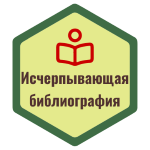The article considers the issue of attitude in modern society towards children diagnosed with autism. Examples of international, national and personal perspectives in the field of personal perception, medical support and education of children with this diagnosis are analysed.
Keywords: children, autism spectrum disorder, relationships, research, interviews, support, education.
В статье рассматривается вопрос отношения в современном обществе к детям с диагнозом аутизма. Анализируются примеры международных, национальных и личных перспектив в области личностного восприятия, медицинской поддержки и образования детей с таким диагнозом.
Ключевые слова: дети, расстройство аутистического спектра, отношения, исследование, интервью, поддержка, образование.
Autism spectrum disorder (ASD) is caused by the uncontrolled differences that take place in the brain. People with ASD face difficulties in interacting and communicating tend to have specific behaviors and interests. Some population tend to ignore and do not accept people with this diagnosis; however this feature can make benefits in becoming a professional in a specific sphere. Countries like China and Israel with a high level of ASD among the citizens are already making a successful effort toward this issue. However, Kazakhstan has no trend of improving the service in this sphere. Being a citizen of this country, I chose this topic to attract the Government representatives’ attention to the issue in order to make sure that appropriate measures will be taken to maintain comfortable environment for these people and their families, in accordance with activities that have been held in other countries. I show the interest in this phenomenon, because I am a volunteer at the academy that specializes in teaching inclusive children. There are many approaches and methods of working with children with autism like, ABA (Applied behaviour analysis), VBA (Verbal behaviour analysis), that are not sufficiently improved in Kazakhstan. This issue only concerns the mothers, who diligently struggling all by themselves. This problem arises due to insufficient attention paid to the system of diagnosis detection at early stages, and the lack of a specific policy in the field of education.
The society, in general, are biased and tend to have dehumanizing attitude toward people with this diagnosis, because they are often scared of what they do not understand, however, it is an uncontrolled process, that might occur also with their children. A good illustration of the negative attitude could be provided by the following statistics in Australia: Australians were concerned or very concerned with the issue if an autistic person was appointed as their boss — 20.1 % and if a close relative married an autistic person — 20.1 %. Interestingly, respondents were less likely to be concerned or very concerned with an autistic child moving in the next door — 5.5 % or being a classmate — 8.1 % than if an autistic adult moved next door — 12 % or became a colleague — 10.3 % [1, p.2]. Hence, ordinary people avoid communication at professional and individual levels, which affects emotional well-being of autistic children’s mothers.
Self-blame and guilt among parents of ASD children is common and predicts worsening depression and lower life satisfaction over time [2, p.2]. Therefore, mothers tend to feel themselves alone and desperate, because the criticism of others. About 50 % of all mothers of children with autism spectrum disorder (ASD) had elevated levels of depressive symptoms over 18 months, while rates were much lower (6 % to 13.6 %) for mothers with neurotypical children in the same period [3, p.2]. The statistical population of the study included all mothers of children with neurodevelopmental disorders in Shiraz, Iran. The sample consisted of 150 mothers of children with neurodevelopmental disorder. The results showed that the feelings of hopelessness and the two subscales of feelings of hopelessness, i.e. negative expectations of the future and the loss of motivation in association with the future, in mothers of children with ASD were significantly higher than the groups of mothers with other neurodevelopmental disorders [4, p.2]. Therefore, it reflects the importance of emotional as well as the material support towards mothers of kids with autism.
Тhe problem of autism in Kazakhstan shows insufficient development of the system of social and psychological support for these members of society, and which identifies the imperfection of the system of clear diagnosis of ASD. The explored studies have shown that early diagnosis and immediate behavioral intervention can lead to significant improvements in mental development and speech ability in young children with autism. The absence of officially approved standards for the diagnosis of autism leads to a growing trend of prevalence, as well as the lack of competent child psychiatrists, pediatricians, neurologists in the field of early diagnosis of autism spectrum disorders. That is why, in 2021, a 3-day training was conducted for 15 Kazakh specialists responsible for the diagnosis of children with autism spectrum disorders, according to the «gold standard» of diagnostics with ADOS-2 and ADI-R tools. The training was organized by the National Applied Research Centre for Mental Health of the Kazakh Ministry of Health as part of the implementation of the measures of the Project Group on the development of the system for providing support and assistance to children with autism, as well as with mental and behavioral disorders [5, p.3]. In order to provide the special members of our society with favorable conditions and support, the system of early identification of this diagnosis should be properly improved because the level of professionalism among the specialists of the country indicates the well-being of children with ASD.
Inclusive children face obstacles in getting qualitative education. Because there is a lack of special schools for such children and impossibility to provide specific programs. Usually, specialized schools for these people, require more cost and effort, despite their ability to absorb easily the information. Every child with this diagnosis needs a definite personal program. That is why, time and qualified specialists are needed. The idea is supported by the interview with the mother of the boy Stepan with a confirmed diagnosis of autism. Galina Ivanovna, his mother, made several points about education sphere. She mentioned hardships in education, especially, the fact that Inclusive education is developing very slowly. Therefore, there is no specialized training for teachers in this area, most schools do not have an Inclusive Support Room, a shortage of pedagogical assistants, illiterate model teaching aids for children with special educational needs. Hence, local authorities are trying to send special children to study at home.
However, researches in terms of high-functioning autistics’ ability to focus indicates that people with ASD have an increased ability to focus attention on certain tasks. While neurotypicals may “waste” time in some activities that appeal to them -activities include socializing and small talk — people with ASD can concentrate for extended periods of time on reading, writing, observing, painting [6, p.3]. Nevertheless, they still get refuses from schools. The mother of the boy Fedor with a confirmed diagnosis of autism, Natalia Arkhipova, after the correctional kindergarten, could not send him to a resource class. In the PMPK (psychological, medical and pedagogical Commission) she was denied this on the grounds that the child did not speak. At first, she tried to prove the need for such training for the child. Several times, to no avail, she turned to one or another instance, which redirected her to each other. Then, having lost hope of placing the child in a resource class, Natalia decided to find a tutor for him at a correctional school. A mentor for the boy was never appointed. And even Natalia arranged for him to go to a correctional school with great difficulty. Nevertheless, every child has a right to get access to high-quality education.
Despite the financial support of our government for autists, social protection is needed for improvement. Because these children experience the same negative attitude towards service and nursing allowance. The interviewee provides the example that in healthcare, there is a huge problem with dental treatment. Since it is mostly possible for special children to treat or remove teeth only under anesthesia due to diagnosis, this procedure costs a lot of money. Social protection was established as the sphere where they mostly experience discrimination. Rehabilitation is not normal. Benefits are small. When the child reaches the age of 18, the parent’s nursing allowance ceases, and the child’s disability allowance remains. Accordingly, a parent actually becomes dependent on his own child. The retirement age for one parent caring for a child with disabilities should not be lowered. The only benefits are for travel and extraordinary service in medical organizations, the rest is like for everyone. Thus, оwing to their physical disorders inclusive children should not tolerate dishumanizing attitude in social life.
The availability of various benefits, programs can be assessed as the lowest. Benefits are very small. It is impossible to live on this money. As Galina Ivanovna has said, everything should be changed from expanding the range of benefits for families with children and adults with disabilities to reducing the retirement age for one of the parents of children with disabilities. It is needed to make education more accessible (school and professional), as well as sports, leisure (creative and technical sections), rehabilitation, sanatorium — resort treatment. To allow a parent to work for his or her child as an individual assistant after they reach the age of 18, age 1 and 2 (mental disabilities). To provide affordable housing with the right of privatization. The senior officials like to refer to the experience of European countries. Taking into account the experience of America or Germany to create a comfortable life for people with disabilities. Therefore, the interview approves the aforementioned statements and underlines the key aspects of the missing points in Kazakhstan, from the personal experience.
In our modern society targeting attitudes to reduce stigma associated with autism is essential. The dehumanizing attitude was approved, because nearly most of the parents as well as the children have experienced bullying and criticism. However, the statement that government is not paying attention to this problem was rejected, as there were several seminars that were held in order to improve the system of early detection of the diagnosis. The problems that children with ASD and their family face should not be ignored, and the attitude towards them should ceased to be cruel, as they have the same rights as everyone. Therefore, a favorable environment should be maintained by the Government and others without any discrimination.
References:
- Sandra Jones, Muhammad Akram, Nicole Murphy, Paul Myers and Natasha Vickers (26.09.2018). Australia’s Attitudes & Behaviours towards Autism; and Experiences of Autistic People and their Families. Retrieved from https://www.amaze.org.au/wp-content/uploads/2019/06/Education-Community-Attitudes-and-Lived-Experiences-Research-Report_FINAL.pdf
- Jess Berthold (26.08.2022). Half of Moms of Kids with Autism Have High Depressive Symptoms. Retrieved from https://www.ucsf.edu/news/2022/08/423546/half-moms-kids-autism-have-high-depressive-symptoms
- Int J Dev Disabil (12.03.2020). Feelings of hopelessness in mothers of children with neurodevelopmental disorders. Retrieved from https://pubmed.ncbi.nlm.nih.gov/35937174/
- UNICEF Kazakhstan (05.07.2021). Kazakhstan specialists to learn «gold standard» for diagnosing autism. Retrieved from https://www.unicef.org/kazakhstan/en/press-releases/kazakhstan-specialists-learn-gold-standard-diagnosing-autism
- Forbes (20.07.2017). Research Shows That People With Autism Have A Stronger Aptitude For Focusing On Tasks. Retrieved from https://www.forbes.com/sites/quora/2017/07/20/research-shows-that-people-with-autism-have-a-stronger-aptitude-for-focusing-on-tasks/?sh=1775f91f2e82
- KAZANFIRST (07.12.2020). Detei autistov gorazdo bol’she, chem gosudarstvennaya sistema mogla sebe predstavit’. Retrieved from https://kazanfirst.ru/articles/534422










